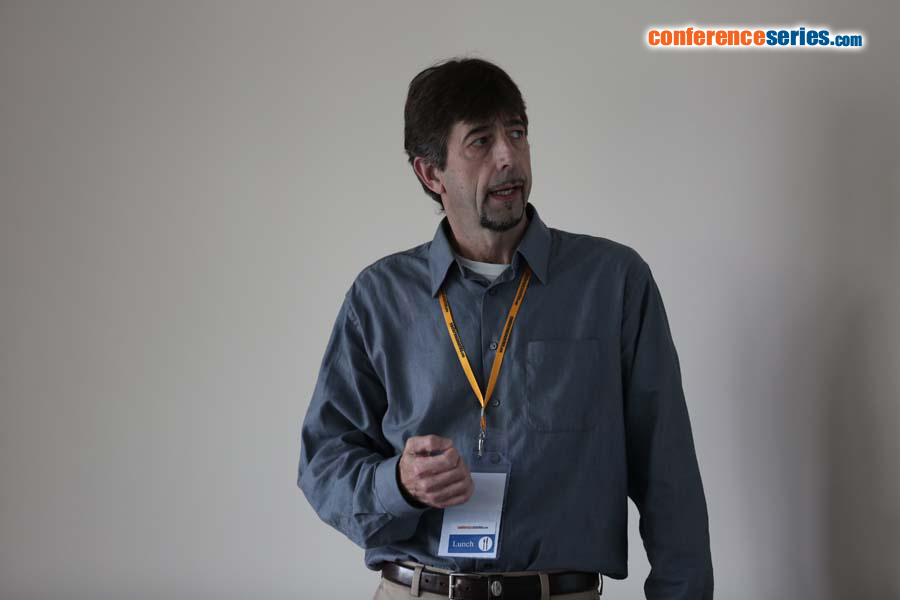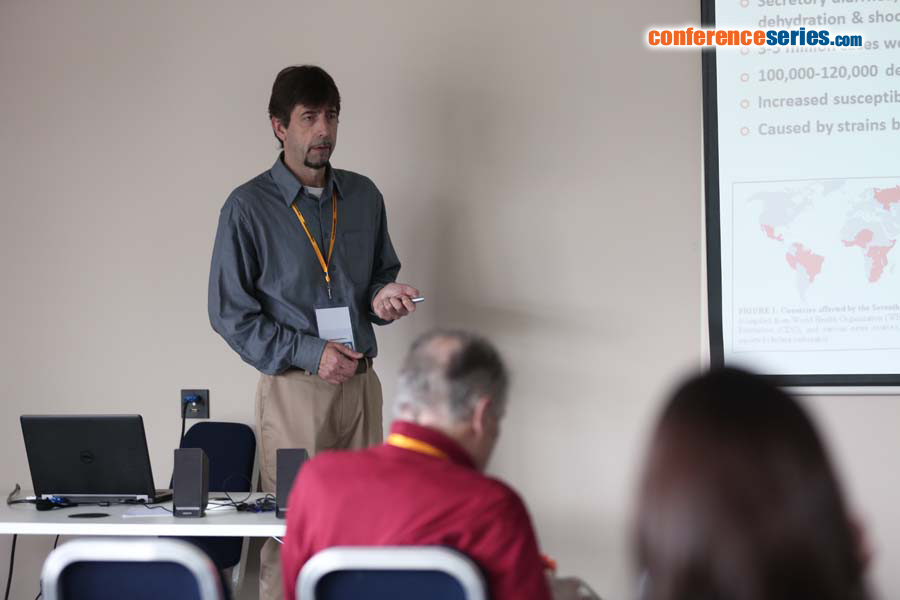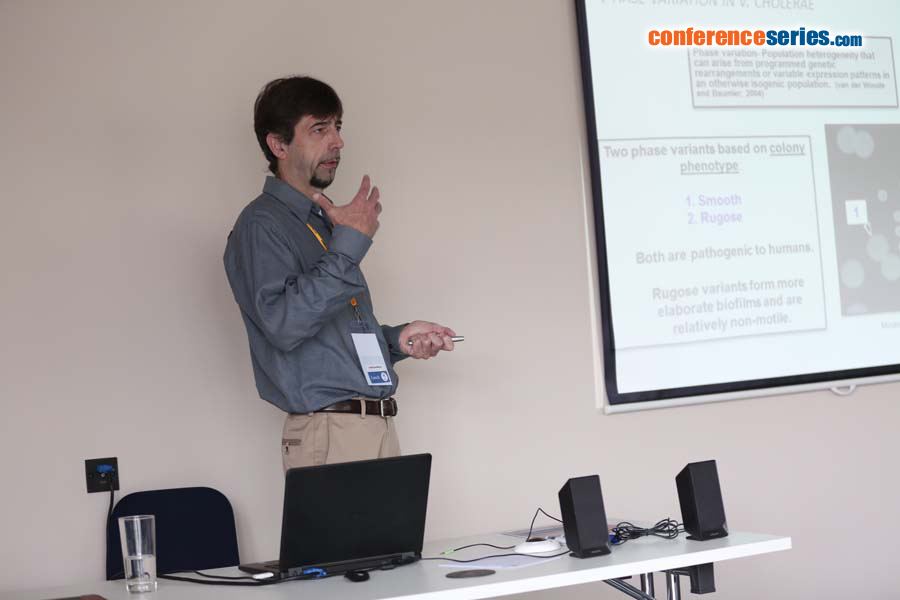
Gregg S. Pettis
Louisiana State University, USA
Title: Phenotypic and transcriptomic analyses of colonial phase variants of the cholera pathogen vibrio choleraeReveal a novel biofilm-defective form
Biography
Biography: Gregg S. Pettis
Abstract
In a process termed phase variation, the marine bacterium and cholera pathogen Vibrio cholerae alternately expresses smooth or rugose colony types, with the latter linked to sophisticated biofilm architecture and a greater resistance to environmental stress. To assess transcriptome changes in response to phase variation in V. cholerae O1 El Tor pandemic strain N16961, we compared the transcriptome obtained by RNA-seq among the smooth parent N16961, its rugose derivative (N16961R) and smooth isolates obtained directly from the rugose at high frequencies consistent with phase variation (N16961SD). Phenotypic characterization of these isolates, including the ability to form pellicles and produce biofilm, was also performed. Differentially regulated genes were revealed for various cellular functions, including acetate metabolism, gluconeogenesis, and anaerobic respiration, suggesting critical links between these processes and biofilm formation in this organism. Principal component analysis separated the transcriptome of the novel phase variant form N16961SD from the other phase variants entirely. Unexpectedly, although N16961SD produced no detectable biofilm, transcription of its biofilm genes was elevated similar to N16961R. Other transcriptome signatures involving two-component signal transduction, c-di-GMP synthesis, chemotaxis, and environmental persistence were also shared between N16961R and N16961SD. These share signatures may implicate a stress adaptation in the pathogen that facilitates transition of the N16961SD smooth form back to rugosity. We are currently exploring the genetic or epigenetic basis of this unusual biofilm-defective N16961SD isolates so that we may more fully understand their role in the ecology and potentially the pathogenesis of V. cholerae.




